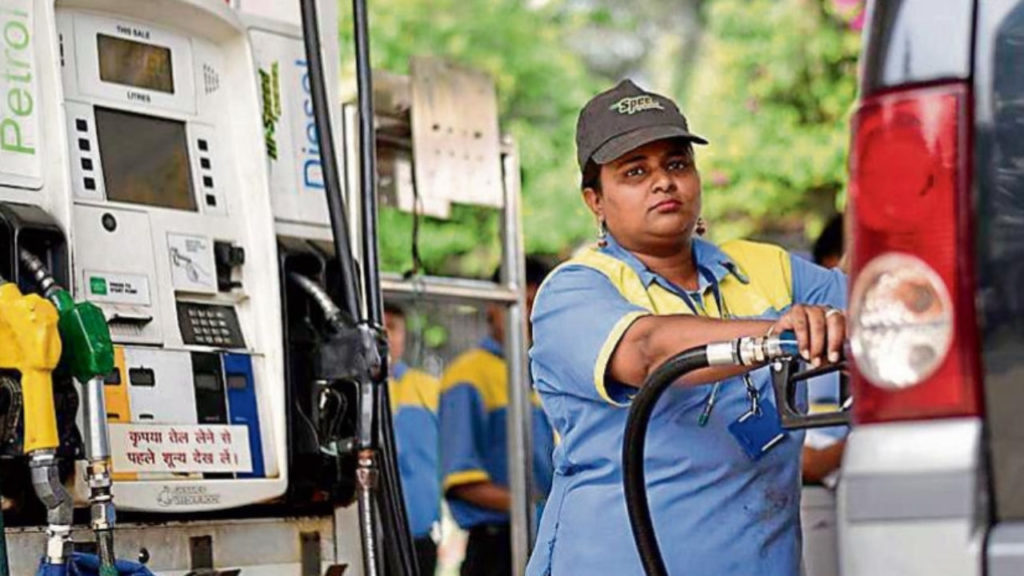Govt Wants To Earn Rs 90,000 Cr By Selling Bharat Petroleum At Double Valuation

India’s second largest fuel retailer, Bharat Petroleum Corp. Ltd (BPCL) is on the way to getting privatized. The government’s objective behind this is raising Rs 90,000 crore at double the current valuation by setting the price of the oil retailer to its rivals.
The Finance Minister is hoping that this share sale will help the government to meet the divestment target of Rs 2.1 trillion announced in the budget of 2020-21. Rs 12,225 crore out of this hefty target has already been raised.
How The Valuation Of BPCL Will Be Done?
Reportedly, the privatization of BPCL will be looked after by the department of investment and public asset management (DIPAM) and advised by the accounting organization, Deloitte Touche Tohmatsu India.
While explaining the valuation process of the state run refiner an anonymous government official said, “If anybody thinks that the government will do the BPCL valuation only on the basis of its share price, then they are wrong. The government has to look at the asset valuation also. It will also have to look at the share price of the companies in the peer group,” he said.
“The government should get at least Rs 90,000 crore. BPCL’s assets are so vast, this money (Rs 45,000 crore) can easily be realized by selling BPCL’s assets without impacting the main core business,” he added further.
Leading company in the natural resource sector Vedanta Group, and other American investment companies like Apollo Global and I Squared Capital have already shown their interest in the matter by submitting EOIs.
What Are The Possible Outcomes Of This Plan?
Vice President at institutional equity research, Elara Securities (India) Private LTD shared his analysis of the steps planned by the government.
“We believe BPCL has a potential value of 2x over current market price in long term, if government offers stable taxation regime for gasoline and diesel sales, as their 16000 plus retail outlets can be valued at more than 80000-100000crore based on RIL-British Petroleum and other similar global deal on retail outlets stake sales. Moreover, on replacement cost basis refinery and terminal/depots network can potentially add enterprise value of around INR40000 crore each, over and above value from other businesses like product pipelines, LPG, industrial fuel, ATF, Lubes, gas sales and stakes in IGL and Petronet LNG,” he said.
“However, 2020 witnessed huge tinkering with excise duties in gasoline and diesel, which resulted in a doubling of excise duty in diesel. That we believe has impacted the valuation of BPCL and raises concerns over potential bidders as costlier gasoline & diesel would help grow competitive fuels like direct LNG use on trucks, electric vehicles, CNG sales at the expense of gasoline and diesel demand growth,” he added.
When Will The Process Start?
According to the reports, the second stage of the process with few qualified bidders has already begun. Deloitte had earlier informed all the interested bidders if they have been shortlisted for the sale process. In the second stage, these qualified bidders will sign business transfer agreements along with site visits of BPCL facilities. The bidders are given the liberty of taking a look at OMC’s books before deciding their final bids.
Though the successful bidders will not have a controlling stake at BPCL, they will be accessible to 25.77% of the public refiner along with 15.3% reach in India’s total refining capacity. However, the entities involved in the process including transaction advisors and the bidders are opting to keep quiet on the matter.
Prime Minister has expressed his intentions of increasing the refining capacity of India, one of the largest crude oil buyers in the entire world, from 249.36 mtpa to 400 mtpa by the end of 2025.

Comments are closed, but trackbacks and pingbacks are open.